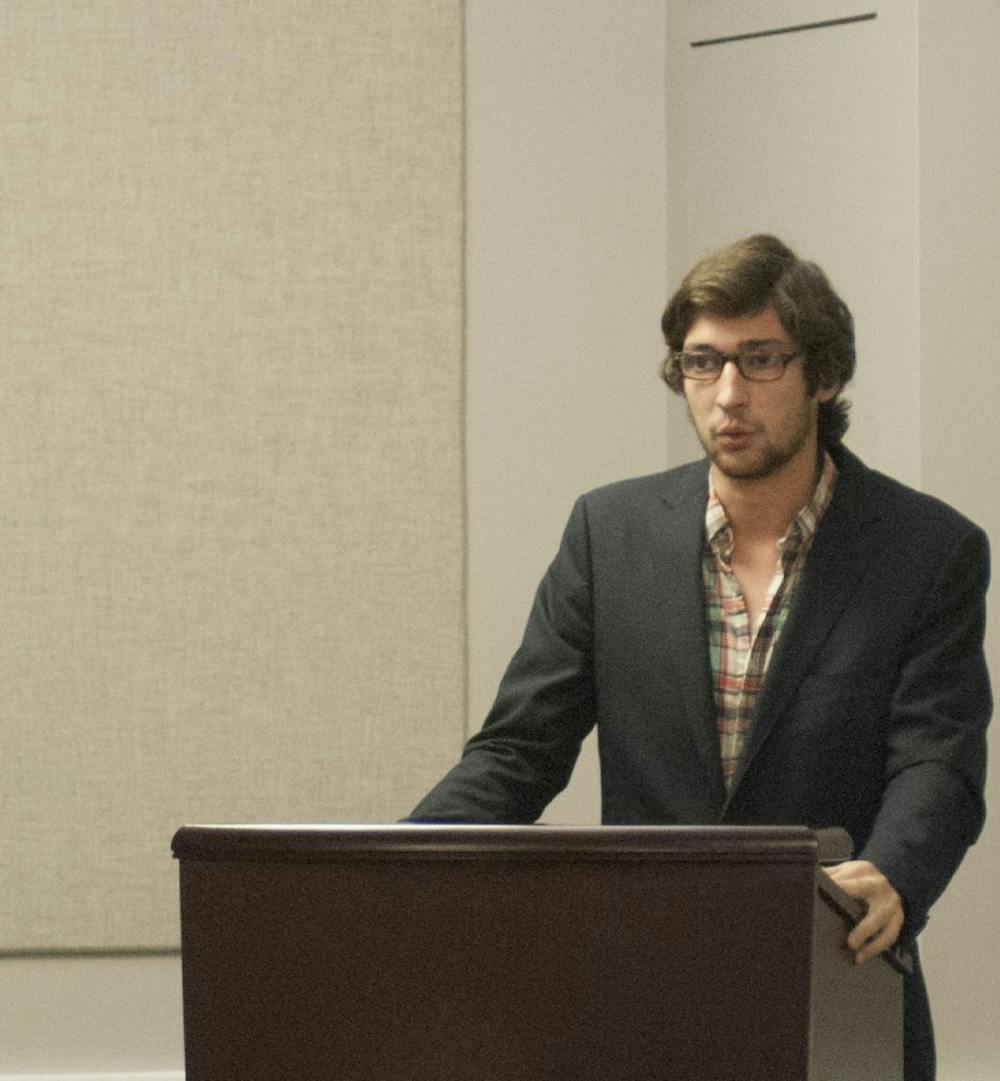Honor Committee Chair Evan Behrle, a fourth-year College student, spoke at Student Council’s representative body meeting Tuesday about recent changes to the honor system and outlined the Committee’s plans to implement them throughout the year.
Last semester the student body voted to implement informed retraction, which allows students to admit to an honor offense after being accused. These students then are suspended from the University for two semesters.
“All is not well with the honor system, but I believe all can be well,” he said.
Behrle said the Committee will be targeting three areas going forward: policy, personnel and culture.
The Committee’s policy efforts will focus on successful implementation of informed retraction, which Behrle said “adds to the system of learning” by encouraging students to come forward and admit honor offenses.
With regards to personnel, Behrle said the Committee’s attempts at jury and support officer trainings have not been sufficiently successful in the past. Member training was addressed earlier this semester when the Committee voted to combine the educators, counselors and advisors into a single training pool.
To improve jury training, Behrle said a potential option would be a constitutional amendment, to be voted on by the student body, which would require trials to have mixed juries — comprised of random students as well as trained honor jurors.
The Committee’s student outreach is a weak point for the organization, Behrle said.
“We haven’t done a good job connecting with the students,” Behrle said.
Behrle proposed several methods to gauge student opinion for the honor system, including surveys and an educational module, such as the one sent to students via email last week. He also proposed informal methods, including weekly dinners with students.
Correction: The original version of the article stated that the Committee is considering a constitutional amendment, to be voted on by the student body, which would require trials to have mixed juries. It is not.







